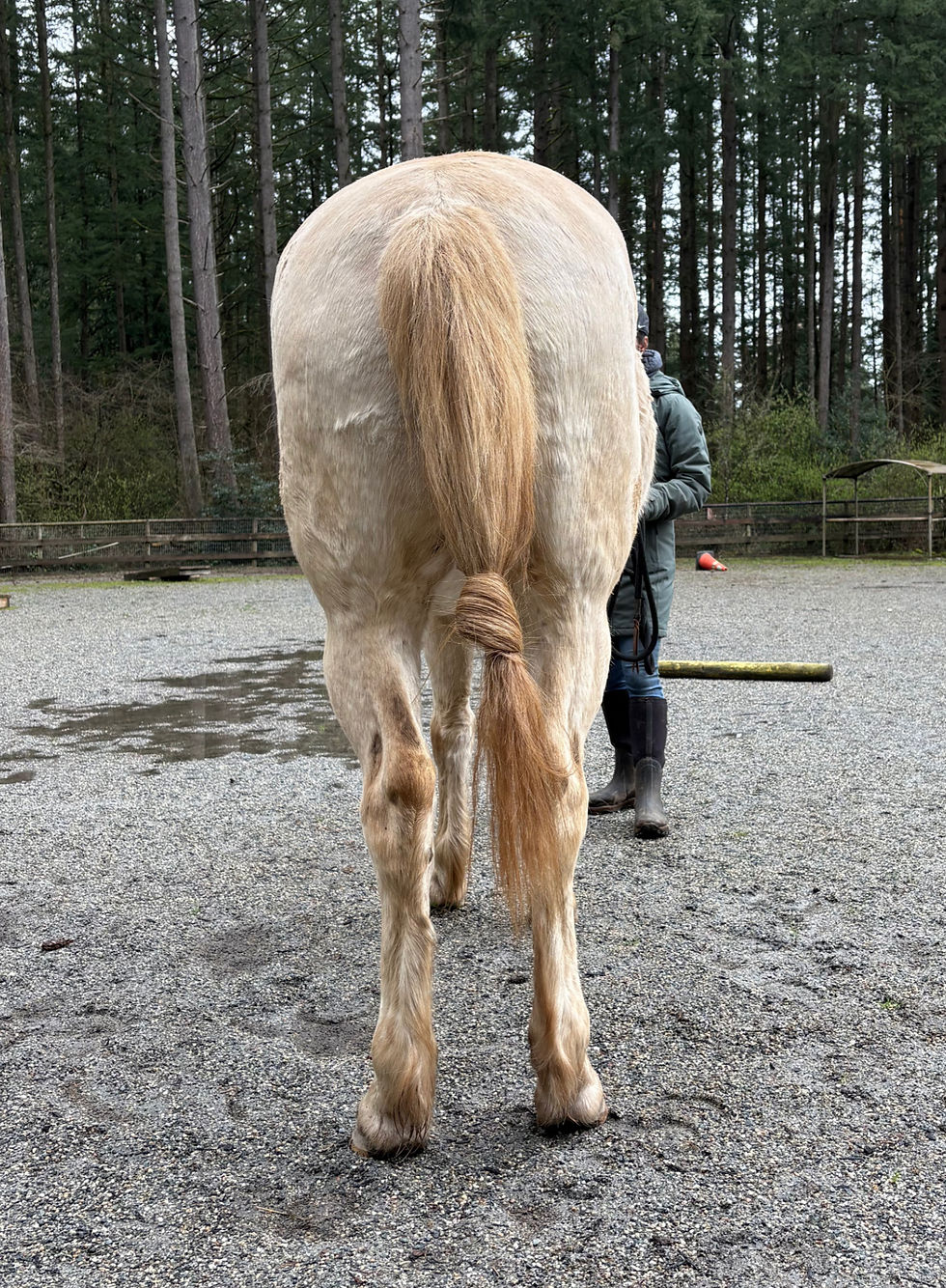Can Horses Suffer Brain Injury?
- Elisse Miki

- Dec 27, 2021
- 3 min read
Updated: May 26
A very common question I get asked by horse owners is, "Can my horse sustain a brain injury and/or concussion when they hit their head or pull back?"
In short yes, although there are many factors that will affect each case. Below is an example of a client horse where I suspected there may have been a brain injury/concussion based off the substantial cranial bone displacement seen on the left side alongside with various telling signs and symptoms.
In the 'before' photo the top arrow points to the forehead musculature and eye which is sunken and receded. The bottom arrow in the same picture shows the lateral deviation of the jaw and nasal and bones. The 'after' picture demonstrates the movement of the cranial bones achieved in just one session. Of specific importance, this horse's behaviour shifted dramatically into a parasympathetically driven state (relaxed through back, head low, breathing became deep and full, large releases) once a few of the key cranial bones such as the sphenoid, temporal, and occupit were mobilized.

What Are The Common Signs & Symptoms?
Some of the most common signs and symptoms a horse has suffered a brain injury/concussion are listed below. This list is not exhaustive by any means as there are many factors that play a role in presentation of this injury. Generally speaking, if the horse is demonstrating any combination of these symptoms, it is recommended to consult with your veterinarian first to rule out other severe pathologies or neurological issues, then seek manual therapy from a qualified equine osteopath or cranial-sacral therapist.
Headaches - Does your horse present with irritability with no known cause? Or head shyness to touch? Wrinkles above the eye when asked to do things?
Noise Sensitivities - Does your horse become agitated when noise presents? Do they squint eyes or put ears back in response to loud sounds?
Light Sensitivities - Does your horse leave when you turn the lights on in the morning? Or do they hide in darker areas or back of shelter?
Balance & Dizziness - Does your horse struggle with staying balanced while you are picking their feet out? Or do they seem to wobble and struggle to maintain balance on a circle? Does your horse seem unsure where their feet are?
Focus & Attention - Does your horse seem to have difficulty staying focused on tasks that used to be routine?
Digestion - Has your horse had digestive difficulties following a recent injury or trauma to the head or hind end?
Cranial Bone Displacement - Does your horse have large facial asymmetries from the front view? Are the ears, eyes, and nostrils relatively level or do they appear uneven?
If you are a horse owner or equine therapist looking to learn more on cranial therapy check out our Cranial Therapy Clinics specifically designed with you in mind!
Or to learn more about anatomy and physiology of the cranium check out my podcast on The Whole Horse Podcast where we take a deep dive into the inner workings of the cranium and deconstruct one special cranial bone - the sphenoid!
Ready to Learn More?
Explore our Free Resources for tools you can use right away, dive into our Online Courses to deepen your knowledge, or join one of our Certification Programs to take your equine therapy practice to the next level.






Comments